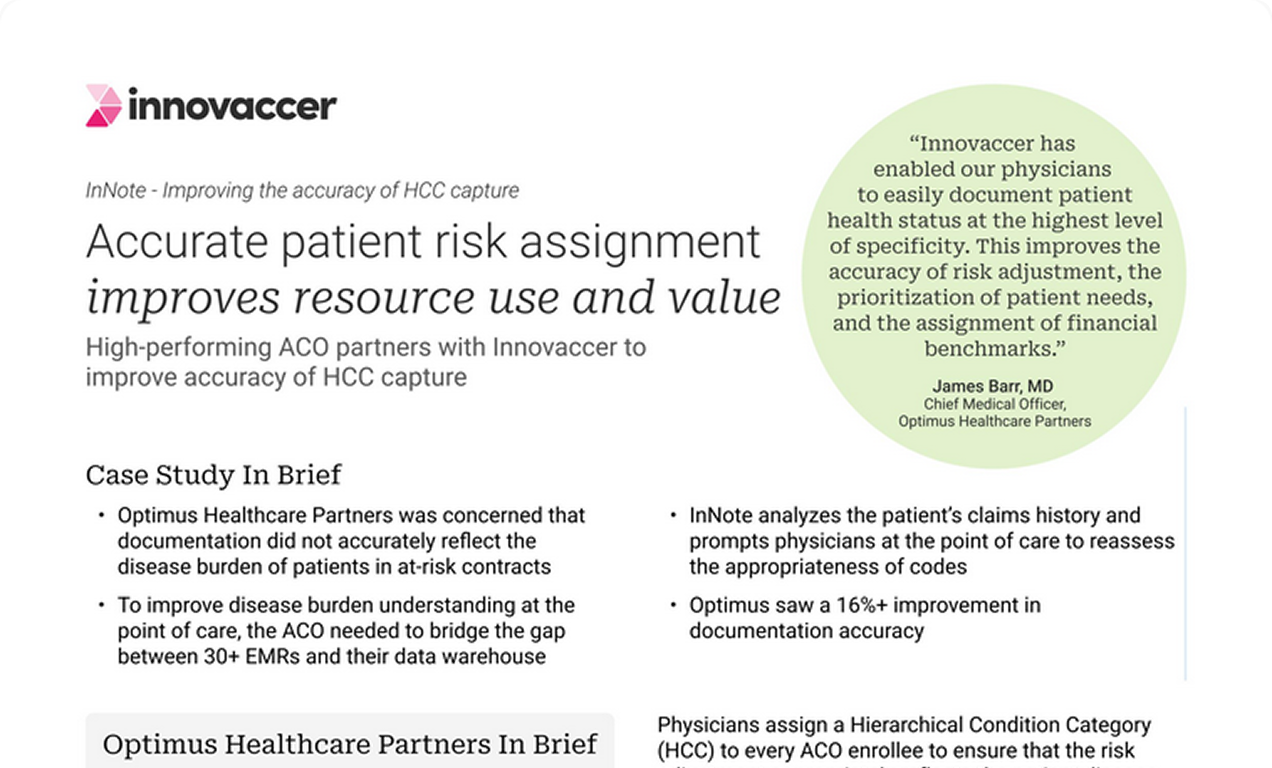The challenges and impacts of health plan regulations

The healthcare industry is constantly evolving. Stakeholders are regularly met with—and must adapt to—new ideologies, perspectives, and practices. Along with varying patient expectations and market competition, government regulations regularly impact the way organizations envision and implement their ongoing business strategies.
Here, we take a look at the impacts of recent regulations—and what they mean for the future of healthcare.
CMS 9115-F: Interoperability and Patient Access
The Centers for Medicare & Medicaid Services’ (CMS) new Interoperability and Patient Access final rule aims to empower patients and improve interoperability while reducing the administrative burden on payers and providers. Most importantly, the rule gives patients greater access to their health information, allowing them to more easily take control of their care. However, meeting the requirements can be challenging for healthcare payers.
Part of the immediate challenge is that the implementation guides for data formatting are not concrete. Taking incoming data from different sources and placing it into a standardized format can be especially difficult when navigating a range of complex terminologies. And in order to carry out the implementation, an organization’s existing infrastructure needs to be ready.
CMS recommends that issuers explore ways to minimize the risk of members’ claims information being unexpectedly shared with a third-party app. This could include storing claims information and making it accessible to each adult member of an enrollment group separately.
This final rule encourages dynamic collaboration between payers and acts as a catalyst for member data exchanges, leading to improved member experiences. Payers should prioritize aggregating new member data from former payers. Not only does this empower members, but it also helps payers gather actionable health insights to create holistic patient views.
CMS 9915-F: Transparency in Coverage
The Transparency in Coverage final rule states that health plans must make certain healthcare pricing information available through standardized, machine-readable files. This information includes negotiated rates for in-network providers, historically allowed amounts for out-of-network providers, prices for all covered prescription drugs, and prices for personalized out-of-pocket cost information.
This final rule disrupts the playing field for payers in the commercial market, as it assumes all health plans have accurate provider data and directories that can be published. In other words, for a plan to be successful, it must have accurate provider data at its foundation. To optimize operations, plan managers and executives will need network management tools that allow them to easily evaluate each provider in the network at any given time. This level of transparency around a plan’s commercial network has a variety of potential implications for certain health plans:
- Smaller plans, which have less capacity to reimburse providers, may have difficulty meeting network requirements as providers choose to contract with higher-paying plans. This could also lead to the consolidation of provider networks, which could harm small insurers.
- Safety net health plans may be at risk because the requirement will expose their more favorable rates, giving providers less leverage to negotiate sufficient payment rates. Further, this could impact the sustainability and affordability of qualified health plans (QHPs) offered through exchanges by increasing rates and reducing network provider participation.
- All plans may want to renegotiate provider rates as they become public. The potential for higher administrative costs for health plans could lead organizations to contract separately with each participating provider. This could cause private networks to consolidate and decrease accessibility to healthcare.
Health plans have the opportunity to add to their capabilities by designing and implementing an intuitive cost estimation tool that goes beyond CMS compliance to integrate quality and cost metrics with simple user interfaces. Patients could use the tool to compare out-of-pocket costs for services across multiple providers.
Payer incentive programs have helped health insurers retain members and negotiate better rates due to changing consumer behaviors. Recently, increased access to data has improved consumer decision-making—and engagement—across the industry.
Due to the effects of the pandemic, price shopping for elective procedures is on hold. Incorporating quality metrics will increase the “shop-ability” of services as Americans seek cost-effective care. As members choose low-cost, high-quality service providers, health insurers can increase their provider network and renegotiate rates with higher-cost providers.
The road ahead
In a recent survey, nearly half of payer executives said their organization is investing in digital products and educational tools (like mobile apps and personalized member portals) to improve member experiences.
Payers need insights on how members may shift between commercial insurance, Medicaid, and Medicare; when to expect significant changes in utilization; and projected impacts to medical loss ratios.
In a survey, 44% of health plans identified “a lack of technical operability” as one of the biggest data challenges to overcome.
Innovaccer’s CMS Compliance solution provides four components to address payers’ current technology needs and meet CMS requirements:
- Payer data connectivity
- FHIR server and API gateway
- Third-party application workflows
- Member workflows.
The regulations in this ever-evolving healthcare landscape are more than just a checkbox. They present the opportunity to overhaul the entire data platform and technology to build for the future of healthcare. The solution helps organizations ingest and transform data, meet compliance standards, and perform member portals and data updates.


.png)






.avif)









.svg)
.svg)

.svg)

